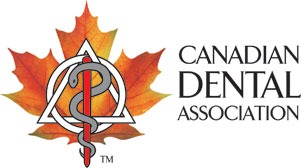Wisdom teeth can be a topic of concern for many and most often, issues occur at the most unfortunate times. The removal of these third molars, also known as wisdom teeth, is a common dental procedure that often raises questions and uncertainties and even more so when it comes to 4 wisdom teeth removal.
In this comprehensive guide, we’ll delve into the world of wisdom teeth removal, covering what wisdom teeth are, the reasons for their removal, the procedure itself, recovery expectations, and much more. Whether you’re facing issues with impacted wisdom teeth or simply seeking wisdom teeth management advice, you’ll find valuable insights here.
Table of Contents

What Are Wisdom Teeth?
Wisdom teeth, scientifically known as third molars, are the last set of molars located at the back of the mouth. These teeth typically begin to emerge during the late teens or early twenties, a stage in life often referred to as the “age of wisdom.” While some individuals may have no issues with their wisdom teeth, others may experience problems due to various reasons.
7 Reasons For 4 Wisdom Teeth Removal at Once
When it comes to addressing the removal of wisdom teeth, one common consideration is whether to go for 4 wisdom teeth removal at once in a single procedure or space them out over time. While the decision ultimately depends on individual circumstances and recommendations from your dentist or oral surgeon, there are several compelling reasons why many people choose to have all four wisdom teeth removed at once:
- Efficiency and Convenience: Undergoing a single procedure to remove all four wisdom teeth is more efficient and convenient. You’ll only need to prepare for anesthesia, take time off work or school, and go through the recovery process once, saving you both time and effort in the long run.
- Reduced Anesthesia: Having all four wisdom teeth extracted simultaneously often means needing a single round of anesthesia, whether it’s local anesthesia with sedation or general anesthesia. This minimizes the number of times you’ll need to be sedated, reducing potential risks associated with anesthesia.
- Comprehensive Assessment: During the initial consultation, your dentist or oral surgeon will evaluate the condition of all your wisdom teeth. Removing all four at once ensures that they can address any potential issues or complications comprehensively. This approach is particularly beneficial if some of your wisdom teeth are impacted or positioned at challenging angles.
- Consistent Recovery: When you remove all four wisdom teeth together, your recovery period is consistent across all extractions. This allows you to plan your post-operative care more effectively and manage any discomfort or swelling during a set recovery timeframe.
- Preventing Future Problems: Even if only one or two wisdom teeth are causing immediate issues, the others may develop problems over time. By removing all four wisdom teeth at once, you minimize the chances of dealing with new complications down the road, saving you from additional procedures and discomfort.
- Cost-Effective: In terms of cost, it’s often more cost-effective to address all four wisdom teeth in a single procedure. You’ll pay for anesthesia, surgical fees, and post-operative care just once, potentially saving you money compared to multiple separate procedures.
- Minimized Disruption: Spacing out wisdom tooth extractions can disrupt your daily life and activities multiple times. Opting for a single procedure minimizes the disruption, allowing you to get back to your regular routine more quickly.
However, it’s essential to consult with your dental professional to determine the best approach for your specific situation. They will consider factors such as the condition of your wisdom teeth, your overall health, and your comfort level when recommending the most appropriate course of action.
Whether you choose to have all four wisdom teeth removed at once or in separate procedures, prioritizing your oral health and following your dentist’s guidance is key to a successful outcome.
Fowler Dental in Mississauga offers comprehensive dental services that include wisdom teeth removal. Contact us to learn more about our services and payment options.
Wisdom Teeth Removal Process
The removal of all four wisdom teeth is a routine dental procedure conducted by a dentist or oral surgeon. Here’s a breakdown of the process:
- Consultation: The journey begins with a consultation where the dentist or oral surgeon evaluates the need for wisdom tooth removal based on X-rays and a thorough examination.
- Anesthesia: Most wisdom tooth extractions are performed under local anesthesia with sedation to ensure your comfort throughout the procedure. In some cases, general anesthesia may be preferred, especially if all four teeth need to be removed.
- Extraction: The dentist or oral surgeon carefully extracts each wisdom tooth. If they are impacted or require more complex removal, a small incision in the gum may be necessary.
- Stitches and Recovery: Once the teeth are removed, stitches are placed to close the extraction site. You’ll be given post-operative instructions to follow during the recovery period.
How Long Does It Take to Remove 4 Wisdom Teeth?
The duration of a four-wisdom teeth removal procedure can vary depending on several factors. Understanding the process and what influences the time involved can help you prepare for your appointment and set reasonable expectations.
- Complexity of Extractions
The primary factor affecting the duration of the procedure is the complexity of the extractions. If your wisdom teeth have fully erupted and are positioned relatively straightforwardly, the removal process tends to be quicker. In such cases, the dentist or oral surgeon can often use simple extraction techniques.
- Impaction Level
However, if your wisdom teeth are impacted, meaning they haven’t fully emerged from the gum line or have grown at an angle, the extractions can be more intricate and time-consuming. Partially or fully impacted wisdom teeth may require surgical techniques, including making small incisions in the gum tissue to access and remove the teeth. The level of impaction and the angle of growth play a significant role in determining the complexity.
- Anesthesia and Sedation
The choice of anesthesia and sedation can also influence the time required for the procedure. Local anesthesia with sedation, such as nitrous oxide (laughing gas) or intravenous (IV) sedation, is commonly used to ensure the patient’s comfort. If you opt for general anesthesia, the procedure may take longer due to the additional time required for the patient to be fully sedated and monitored during the extraction.
- Dentist or Oral Surgeon’s Experience
The experience and expertise of the dentist or oral surgeon performing the extractions can impact the efficiency of the procedure. Experienced practitioners are often more adept at navigating complex cases and can complete the removal with precision and minimal disruption.
Taking these factors into account, a straightforward extraction of all four wisdom teeth may take approximately 45 minutes to an hour. This estimate includes the time needed for preparation, administering anesthesia, performing the extractions, and ensuring your comfort throughout the procedure.
It’s important to note that while the actual extraction procedure itself may not be lengthy, the overall appointment time may be longer due to pre-operative preparations and post-operative recovery monitoring. Additionally, the number of wisdom teeth being removed can also affect the total duration. If you’re only having two wisdom teeth removed, the procedure will naturally be shorter than if all four require extraction.
How Long Is the Recovery Period for All Wisdom Teeth Removal?
Recovery time after wisdom tooth removal can vary from person to person. However, here’s a general timeline of what to expect:
- Immediate Post-Op: The initial recovery period typically lasts a few days, during which you may experience mild discomfort, swelling, and possibly some bleeding.
- First Week: Swelling and discomfort usually peak within the first 48 hours and gradually subside. You should stick to a soft diet and avoid strenuous activities.
- Two Weeks: Most patients can resume their regular activities within two weeks. The extraction sites will continue to heal, and any stitches will dissolve or be removed during a follow-up visit.
- Long-Term Healing: Full healing of the extraction site may take several weeks to a few months, but you should be back to your regular diet and activities by this point.
Should I Get 2 or 4 Wisdom Teeth Removed?
Whether you should get two or four wisdom teeth removed depends on your specific dental situation. Some individuals may only need two removed if the other two are healthy and correctly positioned. However, many dentists recommend removing all four to prevent future issues and simplify the procedure.
If you need to learn more about your unique needs for 2 or 4 wisdom teeth removal, contact Fowler Dental today.
What Can I Expect to Pay for All Wisdom Teeth Removal in Ontario?
The cost of wisdom teeth extraction in Ontario can vary based on several factors, including the complexity of the extraction, the choice of anesthesia, and the dentist or oral surgeon’s fees. Dental insurance may cover a portion of the cost, so it’s advisable to check with your insurance provider. Generally, the cost can range from a few hundred to over a thousand dollars per tooth.
Conclusion
Wisdom tooth removal is a common dental procedure that can significantly improve oral health and prevent potential complications. Whether you’re dealing with impacted wisdom teeth, oral surgery for health problems, or simply seeking relief from discomfort, it’s essential to consult with a dentist or oral surgeon to determine the best course of action.
Understanding the procedure, recovery expectations, and potential costs can help you make an informed decision about your wisdom teeth management. Remember that the comfort level and experience of your dentist or oral surgeon are crucial factors in ensuring a smooth and successful wisdom tooth extraction, reducing the risk of complications such as dry socket and periodontal disease.
If you’re facing wisdom tooth extraction, consult with us at Fowler Dental to find answers to all your dental questions to embark on the path to improved oral health.





